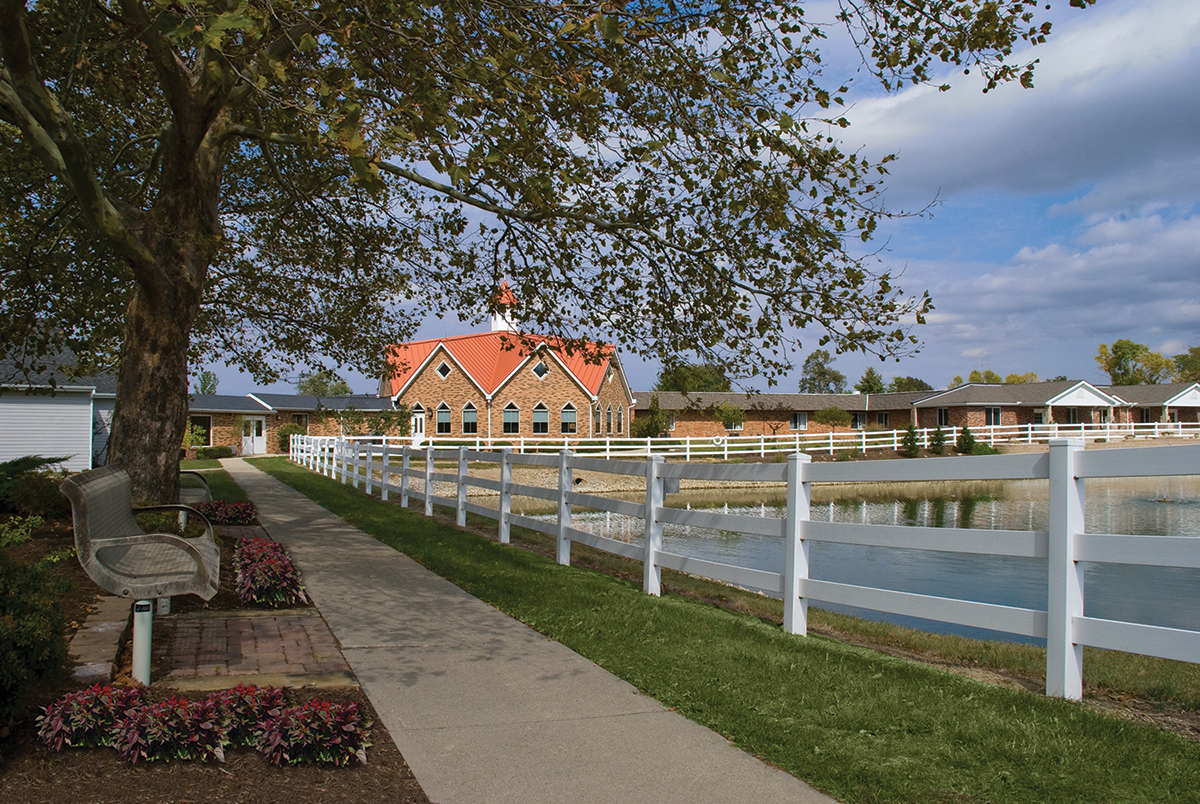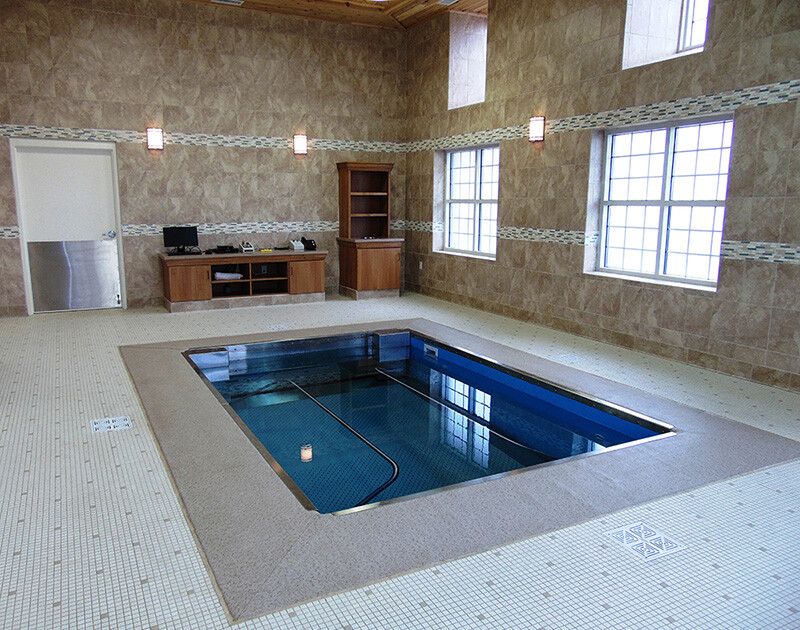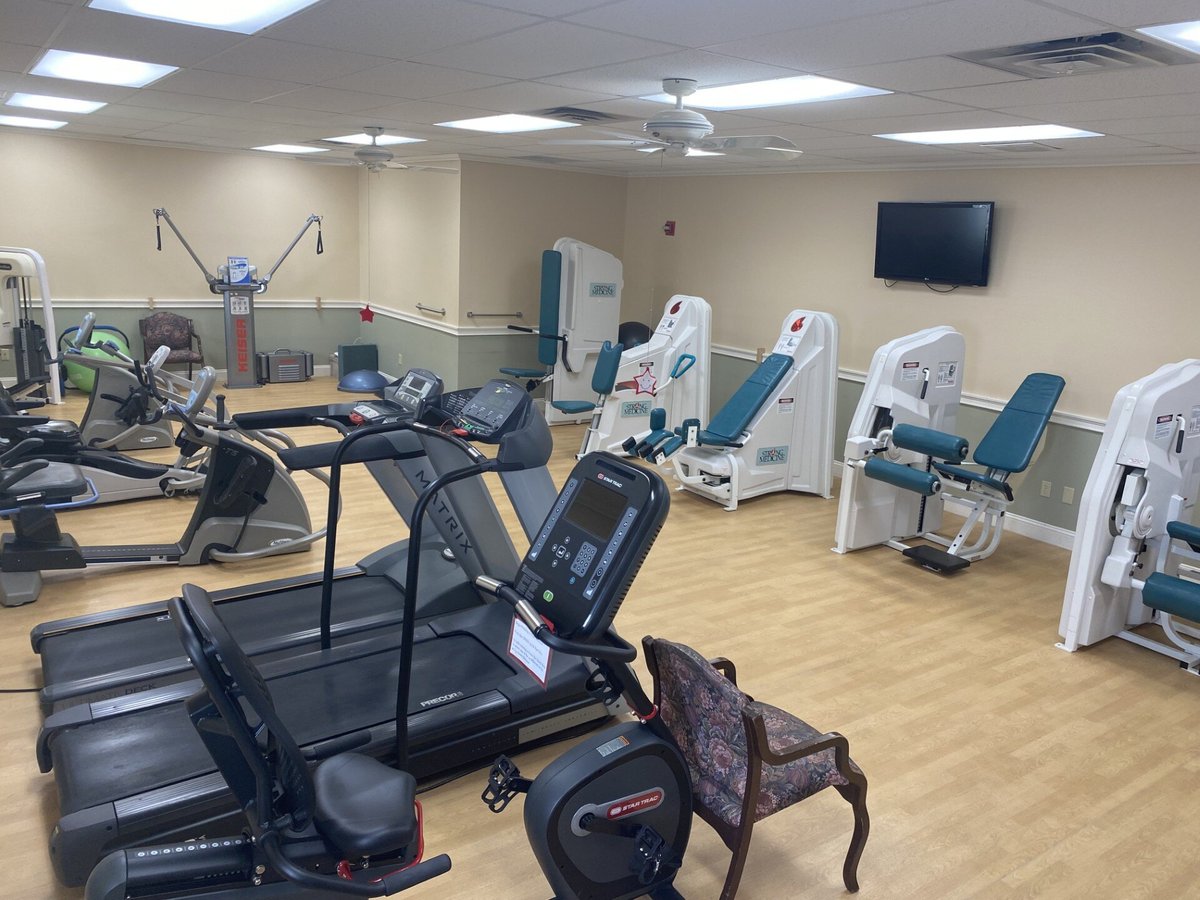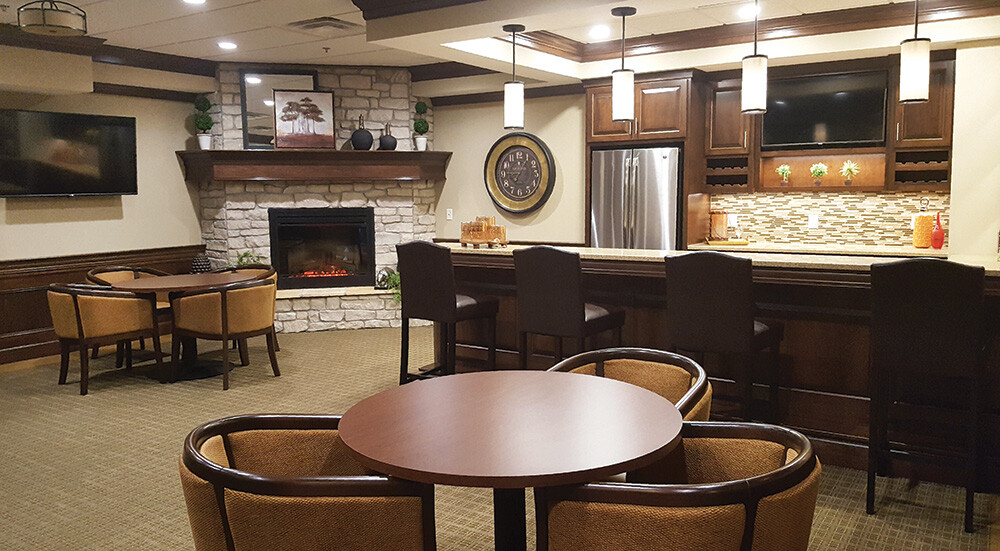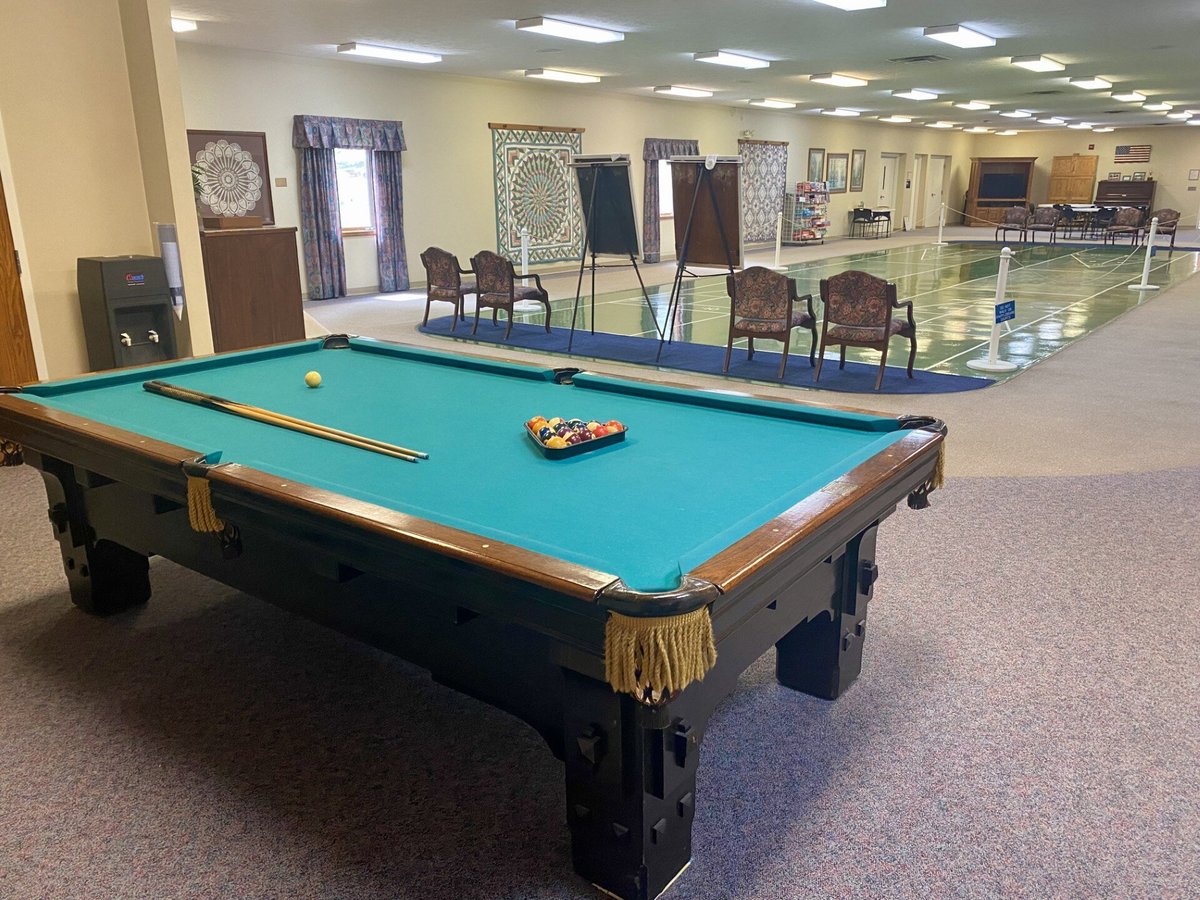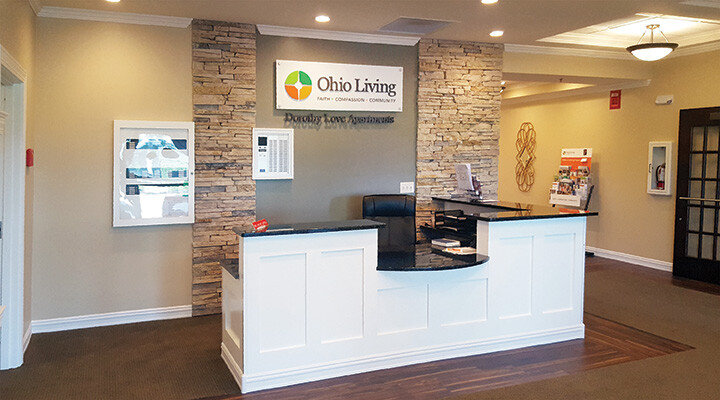Memory Care
Ohio Living Dorothy Love provides a compassionate, supportive and secure environment where specially-trained caregivers provide an individual approach for those who live with Alzheimer’s or other memory-related diseases.
Our program is designed to diminish anxiety and lessen confusion. Residents are encouraged to become involved in a variety of life-enriching activities, resulting in an enhanced sense of well-being.
Sample Floor Plan
Accommodations:
- Fully-furnished including hospital bed
- Pre-wired for telephone and cable TV
- Emergency call system
- Private closet and dresser
- Sink with vanity
Community amenities:
- Meeting and gathering rooms
- Campus center
- Wellness and fitness center
- Gardens and arboretum
- Chapel
- Library
- Access to Nautilus room
- 24-hour security
Services include:
- 24-hour nursing care
- 24-hour security
- Assistance with bathing and/or dressing
- Daily nutritious meals and snacks
- Housekeeping services
- Personal laundry service
- All utilities except telephone
- Basic cable TV
- Social, recreational and spiritual programming
- Secured courtyard and garden
- Social service support
- Personal shopper
- Massage therapy
For an additional fee:
- Transportation to appointments
- Physician services
- Pharmacy services
- Physical, occupational and speech therapies
- Optometrist/ Ophthalmologist
- Podiatry services
- Dental care
- Dry cleaning service
- Professional beauty/barber shop
- Physician services
- Gift shop
Ensuring inclusive holiday gatherings
Family comes in all shapes and sizes, and whether you’re hosting or attending a family gathering, it’s important to prioritize inclusion so everyone feels welcome. A phrase used in our “I’m Still Here” approach to memory care encourages that “there is no one right way to have a family visit.”
Here are some best practices to keep in mind this holiday season when relating to family members or friends who may be living with dementia.
Prepare for the visit: As you prepare for the visit, choose to focus on the positive, and try not to bring the day’s baggage or holiday stresses along with you. To spark conversation, consider bringing along tangible items you can share and discuss. If your loved one has trouble communicating verbally (or is unable to do so), do something task oriented.
With other family members and friends, be sure to explain successful communication techniques and ask everyone to introduce themselves. Do not ignore the disease, and explain Alzheimer’s to children, so they can support a welcoming environment. Lastly, if someone offers to help, say “yes” – many hands make light work.
Keep stimulus to a minimum and consider doing an activity during your visit: Small, intimate gatherings are helpful for people living with dementia. As best you can, try to minimize loud music and unfamiliar loud noises (video games, children’s toys) to avoid confusion, distraction or over stimulus. Giving your loved one something to hold and/or a choice of an activity can also be an engaging way to connect with them during a visit. Be sure to demonstrate when providing activity instructions and don’t worry about doing it “correctly.”
Brush up on helpful communication techniques: Above all, treat your loved one with dignity and respect. Speak slowly and distinctly, approaching from the front and making steady eye contact. Ask one question at a time and provide ample time for them to process the information. Try not to “test” by asking things like “Do you remember?” Non-verbal communication including smiles and hugs are also effective and meaningful elements to incorporate.

